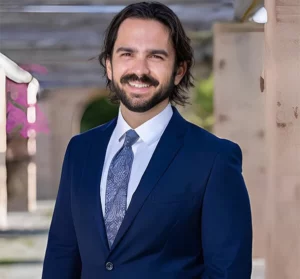When is Probate Necessary in Florida?

You’ve just lost a loved one – a parent, spouse, or another dear family member. While grieving, you realize their personal affairs must be settled, including distributing their belongings and tying up loose financial ends. Where do you begin?
This is where the probate process comes into play in Florida. Probate refers to the legal procedure of transferring a deceased person’s assets and resolving any outstanding debts after their passing. While it may sound difficult, having an experienced guide can make the process.
Assets That Require Probate in Florida
In Florida, probate takes place under the supervision of the circuit court in the county where the deceased (called the “decedent”) was residing at the time of death. The goal is to ensure the decedent’s verified creditors are paid from the estate and the remaining assets are distributed to the rightful beneficiaries according to the decedent’s wishes or Florida intestate laws. Florida intestate laws determine the heirs in the event there is no will.
Not every asset the decedent owns is subject to the probate process though. Only “probate assets” must go through this channel. These are assets that were solely owned by the decedent and did not already have designated beneficiaries.
Some common examples of probate assets include:
-
Real estate held in the decedent’s name alone
-
Bank accounts, investment accounts in the decedent’s name only
-
Vehicles, boats, and RVs titled to the decedent (in certain circumstances, a vehicle can pass to the heirs without the need for probate)
-
Jewelry, art, collectibles, and other personal possessions
Non-probate assets are those that can transfer to new ownership outside of probate court. These may include assets held in joint tenancy or as tenants by the entirety, assets naming direct beneficiaries like life insurance or retirement accounts, and assets held in a revocable living trust.
Florida’s Probate Rules and Statutes
Probate proceedings in the Sunshine State are primarily governed by the Florida Probate Code (Chapters 731-735 of the Florida Statutes) and the associated Florida Probate Rules. These codified laws outline the roles, duties, and procedures to be followed by all parties involved.
The probate court oversees the process and appoints a personal representative (either specified in the decedent’s Will or selected by the court if there is no Will) to administer the estate. The personal representative has fiduciary duties like marshaling all probate assets, paying valid creditors from the estate, and ultimately distributing the remaining assets per the decedent’s wishes or Florida’s intestacy laws.
An experienced probate attorney can guide the personal representative through the procedural requirements and asset distribution phases of probate. This legal counsel helps ensure the administrator follows the letter of the law throughout.
When Probate is Required in Florida
Generally speaking, the main condition triggering the need for formal probate in Florida is if the decedent owned any probate assets located in the state at the time of their passing. Even if they resided elsewhere, probate may be required in Florida for property or accounts based here.
Certain situations and estate circumstances may allow for an abbreviated or streamlined probate process or no probate at all, as we’ll explore shortly. However, you should expect to open a probate case if the deceased owned qualifying assets like a house, vehicle, bank accounts, investment accounts, business interests, etc., solely in their name within Florida.
The size and complexity of the decedent’s estate can also impact which type of probate proceeding is required under Florida’s statutes. Estates with higher-value assets and intricate situations where there is a Will contest will typically require a more formal and involved probate administration.
The Personal Representative’s Duties
he court-appointed personal representative takes the helm in administering and ultimately distributing the decedent’s probate estate according to their Will or Florida intestate succession laws if there is no Will.
This role carries major duties and responsibilities, including:
-
Locating, inventorying, and appraising all probate assets
-
Managing the assets during the probate process
-
Providing proper notice to known and reasonably ascertainable creditors
-
Paying valid creditor claims from the estate’s assets
-
Satisfying any outstanding taxes, fees, or costs
-
Distributing remaining assets to named beneficiaries or legal heirs
-
accounting to the probate court and beneficiaries
Given these significant fiduciary obligations, the personal representative is strongly encouraged to retain legal counsel to ensure they are properly executing their duties and not exposed to any personal liability. Having an experienced probate lawyer also helps the process run much more efficiently.
Types of Probate Proceedings in Florida
The two primary forms of probate administration in Florida are Formal Administration and Summary Administration. Which process applies depends on the value and complexity of the decedent’s probate estate.
Formal Administration is the more comprehensive form involving in-depth court supervision. It requires filing formal notices, petitions, and serving notice to creditors. The personal representative must follow strict procedures laid out in the Florida Statutes and could potentially be required to make regular court appearances.
Formal Administration is required for estates with a value greater than $75,000 or involve unique situations like challenges to the Will’s validity. The advantage is the extra layer of court oversight helps prevent any improprieties.
When Summary Administration Applies
For smaller, straightforward estates valued below Florida’s statutory limits, Summary Administration may be an option. This streamlined probate proceeding skips many of the formal court hearings and filings to save time and costs.
To qualify for Summary Administration under Florida law, the decedent’s total probate estate (with a few exceptions like homestead property) must be valued below $75,000 as of the date of death. Additionally, there cannot be any pending creditor claims or challenges to the Will’s validity, such as Will contests.
The Summary Administration process allows qualifying estates to be closed and distributed much more quickly by filing a simple Petition and avoiding many of the more cumbersome procedures. Of course, the trade-off is less direct court oversight, so it’s best utilized in clearly straightforward situations.
Strategies to Avoid Probate in Florida
While the probate process is designed to facilitate the lawful transfer of assets, many people look for ways to avoid involving the courts and potential delays. Fortunately, probate can often be avoided entirely through proper estate planning techniques and asset titling strategies.
Using a revocable living trust as the primary holding vehicle for your assets is one of the most common and effective ways to avoid probate. Because legal title transfers to the trust, these assets can be distributed to named beneficiaries without court involvement after you pass away.
You can also add beneficiary designations to allow accounts or policies like life insurance and retirement plans to transfer directly upon death without probate. Jointly-owned assets with rights of survivorship also bypass the process.
Florida offers a disposition without administration proceedings for very small estates with little to no real property. This allows an expedited transfer of assets to heirs without opening a full probate case in court.
Requirements for Disposition Without Administration
To qualify for Florida’s disposition without administration, also known as “Summary Release from Administration,” the total value of the decedent’s probate estate must be less than $25,000, not counting certain excluded items like homestead property.
Additionally, the estate must not include any real property (beyond the excluded homestead), and there cannot be any pending creditor claims or other complexities. So, it’s limited to straightforward, modest estates with virtually no debts or disputes.
If all requirements are met, any successors or beneficiaries can petition the circuit court directly by filing an affidavit to have the estate’s assets released to them without formal probate administration.
While this procedure sounds simplified, it still has potential pitfalls if not properly executed. As always, when dealing with estate matters, consulting a qualified probate attorney in Florida is the wisest route to ensure compliance and avoid issues down the road.
The probate process involves many nuances and moving parts depending on the specifics of each estate. Legal guidance is invaluable to ensure full compliance, identify potential issues, and maximize the efficient distribution of the decedent’s assets. At Alexander Gil, PLLC, our Florida probate attorneys stand ready to skillfully guide you from start to finish. Contact us today to discuss your probate needs and secure a trusted advisor for this journey.
Latest Reviews
C. U.
A. G.
M. R.
Y. H.
A. K.
